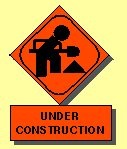by Charles L. Van Noppen
(Greensboro, North Carolina: 1937)

| A Co-operative Movement | 6
| An Explanation | 7
| The Clarion Call | 9
| An Epitome | 10
| Forward | 13
| An Open Letter | 17
| What Will You Have—Health? | 19
| Moral Sense—Cigarettes | 20
| The Tobacco Habit | 23
| Tobacco Most Widespread | 27
| Is the Cigarette Destroying | 28
| 28
| 31
| 31
| Maternal Health and Tobacco | 33
| 36
| 37
| 37
| 38
| 38
| 38
| Your Weakest Link | 39
| 40
| 40
| 41
| 41
| 42
| 42
| Tobacco Smoke Is Vapor | 44
| 44
| 45
| Chained To The Tobacco Habit | 46
| 46
| 47
| 48
| Frauds Exposed | 50
| 50
| |
-3-
| 50
| 50
| 50
| Twenty Thousand Doctors | 54
| 54
| 55
| 56
| Alice Roosevelt Longworth and Some Senators | 57
| Character Witnesses | 59
| 60
| 60
| 61
| Have You A Tobacco Heart | 62
| 63
| The Overworked Engine | 64
| 65
| 66
| Declining Birth Rate | 67
| 68
| 68
| 68
| 69
| 69
| Longevity and Tobacco | 70
| If Tombstones Told the Truth | 72
| Soldiers Did Not Demand | 75
| 75
| Tobacco A Problem | 76
| 77
| 500,000 Have Cancer | 78
| 79
| College Diplomas | 80
| 80
| 81
| 81
| The Confessional | 82
| Comparisons and Workers | 83
| 83
| 84
| 85
| |
-4-
| Tobacco Must Go | 86
| 87
| 87
| 88
| 88
| A Prophecy | 89
| The Cigarette Treatment | 91
| Expert Opinions | 93
| Discovering A Lunatic (Poem) | 95
| 95
| 96
| Her Ash Tray Breath (Poem) | 97
| Why Smoke Anyway | 97
| Death In Cellophane | 98
| The Female of the Species More Deadly | 99
| Bob Hoffman | 100
| 101
| 101
| Behind the Billboards | 102
| Judas Nicotine | 103
| Help Save the Seed Corn | 104
| |
-5-

[Warn the children! tell them the truths about tobacco.]
TOBACCO MUST GO